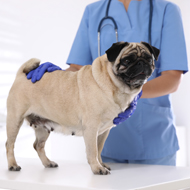Lack of treatment for encysted small redworm A recent survey conducted as part of the National Equine Health Survey (NEHS) last May has revealed that half of all horse owners are not worming their horse or pony correctly for encysted small redworm.
The survey showed that only 50 per cent of 1095 respondents wormed their horse with an effective product for the control of encysted redworm. The remainder either use a product they incorrectly through treated the worm, or simply did not worm their horse or pony at all to control the parasite.
Encysted small redworm may account for up to 90 per cent of the redworm burden in a horse and can pose a serious health risk, and it is important to ensure horses are treated properly during late autumn or winter.
The most common reason given for not treating for this particular worm is if the horse had had a clear faecal egg worm count.
Wendy Talbot, a veterinary advisor to Pfizer, said: “Encysted small redworm won’t show up in a standard Faecal Worm Egg Count - even if the horse has shown a negative or low count it could still be harbouring several million encysted small redworms2, which can present a potentially fatal health risk to the horse.”






 The latest
The latest 
